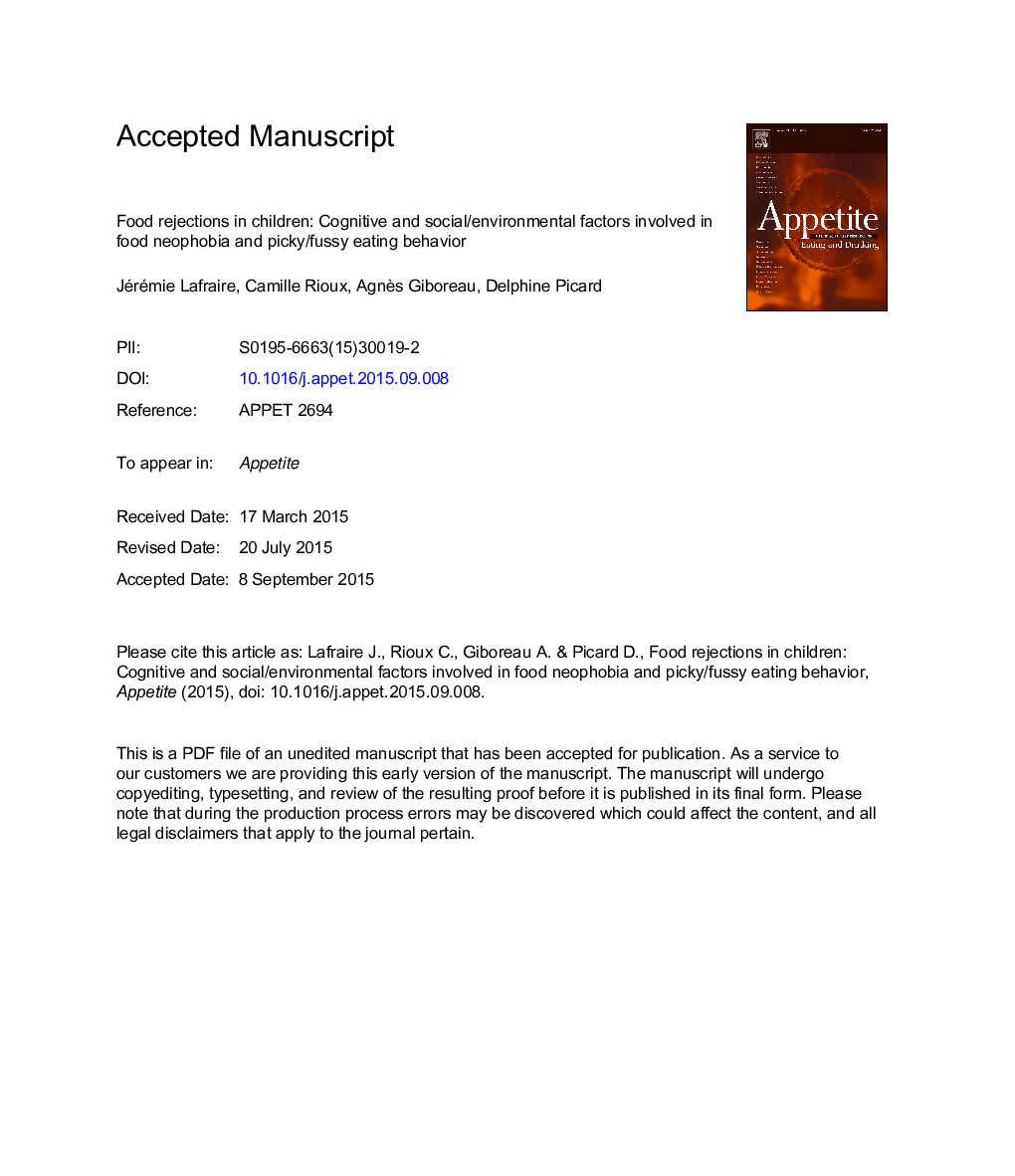| Article ID | Journal | Published Year | Pages | File Type |
|---|---|---|---|---|
| 7307925 | Appetite | 2016 | 55 Pages |
Abstract
Food neophobia and picky/fussy eating behavior are presented as the two main forms of children's food rejections which are responsible for a reduction of their dietary repertoire. We review the key factors, presented in the literature, that are involved in food rejections during childhood. We first consider a range of “cognitive factors”, such as food perception, mental representations, categorization of food items, and emotions and feelings toward food. Next we focus on “social and environmental factors”, as these might also significantly influence and modulate children's food rejections. We then summarize the findings to provide a comprehensive view of the factors involved in children's food rejections. Finally, we discuss the need for future studies on food rejections, regarding (i) the distinction between food neophobia and picky/fussy eating, and (ii) the potential link between food categorization abilities and children's food neophobia and pickiness.
Related Topics
Life Sciences
Agricultural and Biological Sciences
Food Science
Authors
Jérémie Lafraire, Camille Rioux, Agnès Giboreau, Delphine Picard,
